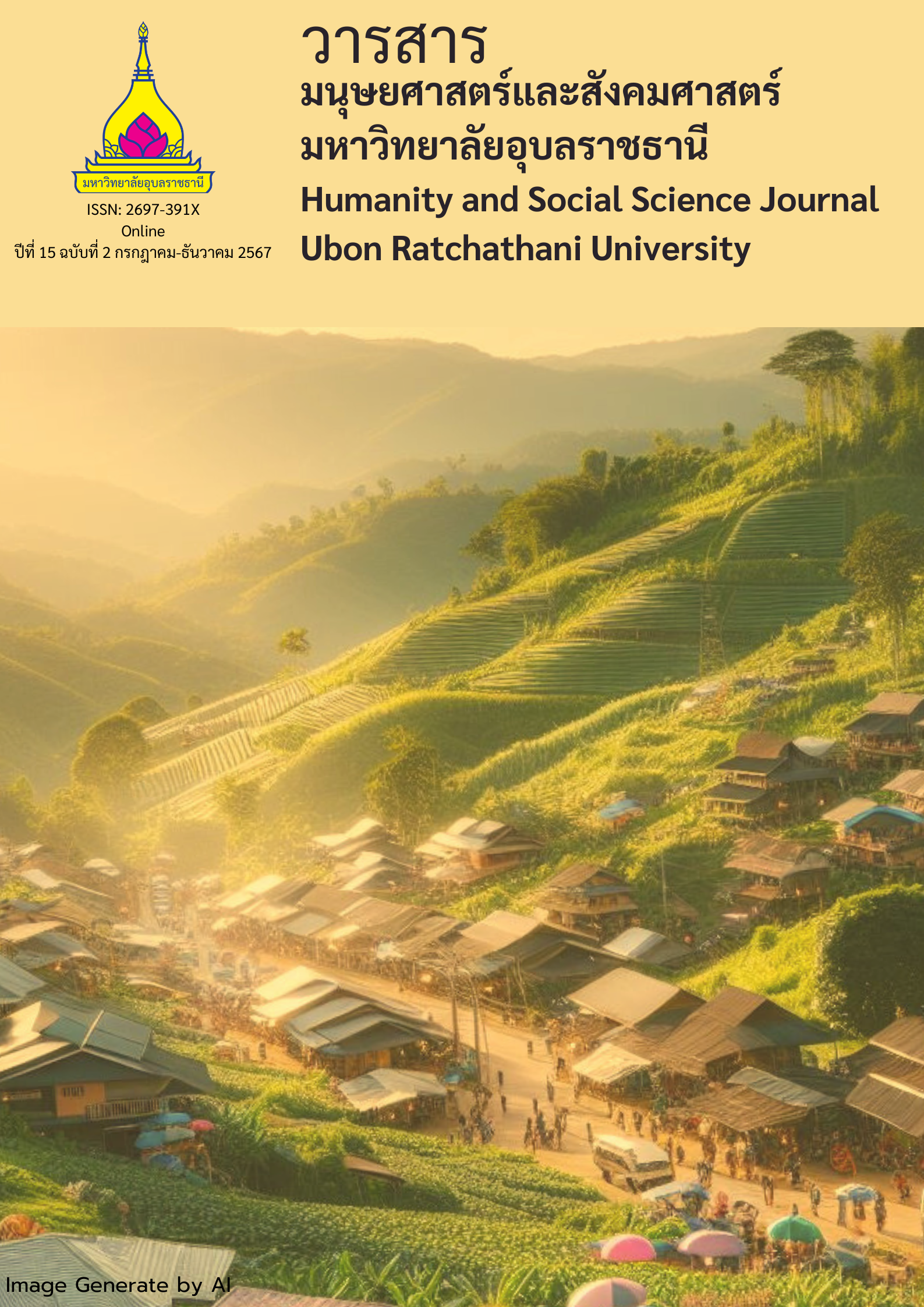มุมมองของนักเรียนและประสบการณ์ของครูที่มีต่อ การจัดการเรียนรู้เพศศึกษาในโรงเรียนมัธยมศึกษาตอนปลาย สังกัดสำนักงานเขตพื้นที่การศึกษามัธยมศึกษาปราจีนบุรี นครนายก
Main Article Content
บทคัดย่อ
การศึกษาครั้งนี้มีวัตถุประสงค์เพื่อศึกษามุมมองของนักเรียน
และประสบการณ์ของครูที่มีต่อการจัดการเรียนรู้เพศศึกษาในจังหวัดนครนายก
วิธีดำเนินวิจัยเป็นการศึกษาเชิงปริมาณและเชิงคุณภาพ กลุ่มตัวอย่างแบ่งเป็น 2 กลุ่ม ได้แก่ ครูที่มีประสบการณ์สอนเพศศึกษาจำนวน 11 คน เลือกแบบเจาะจง
เพื่อสัมภาษณ์เชิงลึกด้วยแบบสัมภาษณ์แบบกึ่งโครงสร้าง หาค่า IOC = 1.00
และนักเรียนมัธยมศึกษาตอนปลาย จำนวน 281 คน เลือกมาโดยสุ่มแบบกลุ่มเพื่อสำรวจมุมมองของนักเรียนที่มีต่อจัดการเรียนรู้เพศศึกษา ด้วยแบบสอบถาม หาค่า IOC = .89 วิเคราะห์ข้อมูลเชิงคุณภาพด้วยการวิเคราะห์เนื้อหา และข้อมูลเชิงปริมาณด้วยสถิติเชิงพรรณา ผลการศึกษาพบว่า 1) นักเรียนส่วนใหญ่ได้เรียนเพศศึกษาในหัวข้อเกี่ยวกับ การตั้งครรภ์ (ร้อยละ 98.75) การคุมกำเนิดและการใช้ถุงยาง (ร้อยละ 96.36) พัฒนาการทางเพศ (ร้อยละ 95.91) และส่วนใหญ่ได้รับวิธีการจัดการเรียนรู้เพศศึกษาแบบบรรยายเป็นหลัก (ร้อยละ 75.00)
2) ประสบการณ์ของครูต่อการจัดการเรียนรู้เพศศึกษา ครูส่วนใหญ่เน้นสอนทฤษฎี และเน้นวิธีบรรยาย เวลาในการสอนที่ไม่เพียงพอ ทำให้ไม่สามารถสอนแบบกิจกรรมได้ และเนื้อหาที่สอนเน้นเรื่องพัฒนาการทางเพศ พฤติกรรมทางเพศ
ที่ปลอดภัย ค่านิยมในเรื่องเพศ ทักษะในการแก้ปัญหาเรืองเพศ สื่อที่ใช้ในการจัดการเรียนการสอน คือ หนังสือเรียน รวมถึงการวัดและประเมินผลเน้นการสอบวัดความจำ
Article Details

อนุญาตภายใต้เงื่อนไข Creative Commons Attribution-NonCommercial-NoDerivatives 4.0 International License.
บทความที่ได้รับการตีพิมพ์เป็นลิขสิทธิ์ของวารสารมนุษยศาสตร์และสังคมศาสตร์ มหาวิทยาลัยอุบลราชธานี
ข้อความที่ปรากฏในบทความแต่ละเรื่องในวารสารวิชาการเล่มนี้เป็นความคิดเห็นส่วนตัวของผู้เขียนแต่ละท่านไม่เกี่ยวข้องกับมหาวิทยาลัยอุบลราชธานี และคณาจารย์ท่านอื่นๆในมหาวิทยาลัยฯ แต่อย่างใด ความรับผิดชอบองค์ประกอบทั้งหมดของบทความแต่ละเรื่องเป็นของผู้เขียนแต่ละท่าน หากมีความผิดพลาดใดๆ ผู้เขียนแต่ละท่านจะรับผิดชอบบทความของตนเองแต่ผู้เดียว
เอกสารอ้างอิง
Anderson, W. & Krathwohl, D. R. (2001). A Taxonomy for learning, teaching, and assessing: a revision of bloom's taxonomy of educational objectives. New York: Longman.
Bloom, B. S. (1965). Taxonomy of educational objectives, the classification of educational goals. New York: McKay.
Boonmongkon, P. & Thaweesit, S. (2015). Sexuality education in Thailand: how far do we need to go?. http://teenpath.net/data/research/ 0010/tpfile/00001.pdf.
Bureau of Reproductive Health, Department of Health, Ministry of Public Health. (2015). Manual for teaching integrated sex education and life skills for students. Nonthaburi: Bureau of Reproductive Health, Department of Health.
Center for Public Health, Policy Mahidol University. (2017). Review of comprehensive sexuality education in Thailand. United Nations Children's Fund, Ministry of Education, Thailand.
Chinphong, P. (2019). “Sex education” (not) secret things that should be taught to children. https://mgronline.com/qol/detail/9620000083633
Department of Disease Control, Ministry of Public Health. (2021). Projects under the Master Plan of the Department of Disease Control and the 20 Year National Strategy. https://ddc.moph.go.th/uploads/ files/1072120191224061446.pdf
Department of Health, Ministry of Public Health. (2022). Situation of Reproductive Health in Adolescents and Youth in 2022. https://rh.anamai.moph.go.th/th/cms-of-1/download/?did=214353&id =109136&reload=
Gagne, R. M. (1985). The Conditions of Learning and Theory of Instruction. U.S.A.: Holt, Rinehart and Winston.
Harrow, A. J. (1972). Taxonomy of the Psychomotor Domain. New York: David McKay Company, Inc.
Joyce, B. & Weil, M. (2003). Model of Teaching. 5th ed. New Jersey, U.S.A.: Prentic-Hall, Inc.
Khaemanee, T. (2013). Teaching Science: Knowledge for an Effective Learning Process. 17th ed. Bangkok: Chulalongkorn University.
Ministry of Education. (2008). Basic education core curriculum, 2008. Bangkok: Ministry of Education.
Office of the Basic Education Commission. (2020). Basic of school information under the province / division of education in Nakhon- Nayok, Educational Management Information System. https://data.bopp-obec.info/emis/schooldata-view_student_area. php?Edu_year=2565&Area_CODE=250001
Path2health Foundation. (2020). E-Learning project evaluation report to develop gender teacher competency. https://www.dla.go.th/upload/ document/type2/2021/6/25523_3_1622792920983.pdf
Sawadcharoenying, P. (2020). A Study of factors affecting sexually transmitted diseases prevention and control implemented by the division of aids and stis during 2010-2019. Thai AIDS Journal. 32(3), 94-113.
Sato, T., Kataoka, C., McKay, C. & Izumi, A. (2022). Teaching sexuality education to secondary students in Japan: reflections from Japanese health education teachers. Sex Education, 22:6, 641-654.
SIECUS. (2004). Guidelines for comprehensive sexuality education: Kindergarten to 12th grade. Meadville, PA: SIECUS. http://www.siecus .org/_data/global/images/guidelines.pdf
Student Protection Centre. (2015). Developing sex education in basic education. Bangkok, Thailand: OBEC, Ministry of Education
Torrance, P. E. (1974). Gifted for children in the classroom. New York: Macmillan.
Tungsaengsakul, S., Suwonnaroop, N., Nakakasien, P. & Panitrat, R. (2017). Effects of sexual health life skills program on perceived self- efficacy in safe sex of early adolescent students. Journal of The Royal Thai Army Nurses. 18(2), 119-128.
Tuntiwisanusopit, B. (2021). Teaching about sex = showing burrows to squirrels? Opening Sex Education courses in Thailand and abroad. https://www.agenda.co.th/featured/sex-education/
UNESCO. (2016). Comprehensive sexuality education: The challenges and opportunities of scaling-up. http://unesdoc.unesco.org/ images/0022/ 002277/227781E.pdf


